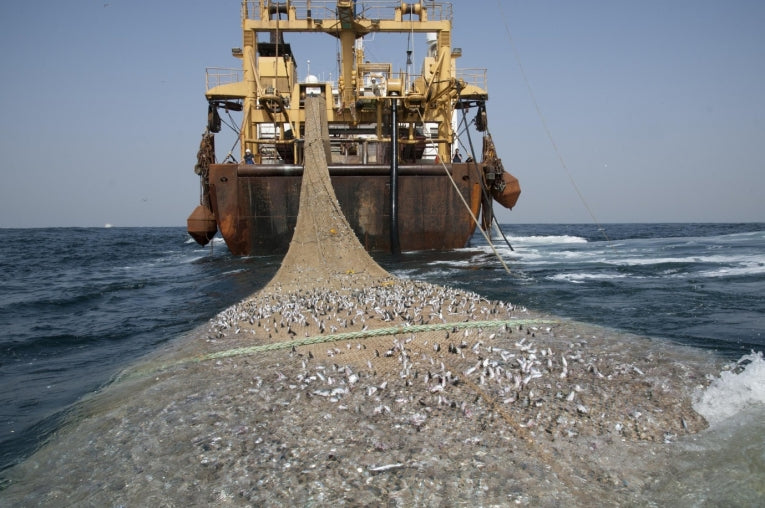When all the world's scientists tend to agree on something, it's worth taking note. What is certain here is that the oceans have died, are dying and will be dead without huge effort on the part of individuals, government, if capable and international organisations, if politics allows them to show their teeth.
The Zoological Society of London got together world renowned researchers who published a paper today on the disgraceful lack of honoured commitments by governments to protect the oceans. 192 nations agreed targets and sustainable management ideals in 2002, but not one has been met!
Many threats are causing this "marine malaise," but none more so that the fishing of deep sea organisms. Having emptied the continental shelves of their precious spawning fish and many others, everything in the deeps is being junked by enormous trawling nets. Mammals and large fish are not excluded so endangered species are involved. It's the wholesale slaughter of habitats and everything in them however that irritates like swarf in the mind's eye.

Osprey Reef, Coral Sea; Credit: © Xanthe Rivett
The one bright light that shines is various creations of large marine reserves. The Maldive Reserve in the Indian Ocean, the Chagos Archipelago, Northwestern Hawaii and the South Orkneys all point in the direction that was promised 20 years ago and was supposed to have been agreed 10 years ago. Now we're in 2012!
There are novel problems arising, as science progresses: ZSL's Marine Policy Officer Liane Veitch says, "There are large scale changes occurring in the oceans that weren't known to be a problem in 1992 or 2002, such as ocean acidification or mass coral bleaching, which we now know will make sustainable ocean management even more challenging." But the original problems still haven't been approached.

Skipjack tuna fishing, East Pacific Ocean; Credit: © Alex Hofford/Greenpeace
Fishing gear such as that used on super trawlers, by seine-net fishermen and some commercial longliners, has been modified in accordance with advice and seabird populations in one or two areas have benefitted from the changes. The critical situation is that usually no protection is afforded to vulnerable marine habitats, some of which have never been explored.
Greed and entrepreneurism which should have passed in the 19th century is often allowed to continue. The Marine Reserves Coalition and the Zoological Society of London have joined forces for the upcoming Rio+20 Summit and more information is available at www.zsl.org/betterplanet.

Wreck Reef; Credit: © Xanthe Rivett
Ready for Rio+20, Australia has added to the marine reserves above with a massive commitment, especially within 194,000 square miles of the newly established Coral Sea marine reserve. With this weeks announcement, Australia has created the world's largest network of protected ocean areas.
In all, nearly a million square miles will be protected there, just east of the Great Barrier Reef. Deep water shark, marlin and tuna will be among the larger protected species.

Boot Reef; Credit: © Robin Jeffries
Apparently, the SW and other coasts of Australia too will benefit. 109,000 square miles of reserve will protect whales and Australian sea-lions as well as the rest of their habitats of course. The PEW Environment Group has been leading Australian and worldwide conservation groups for many years to this successful conclusion to the dream of many.
Australia's Coral Sea; Video footage courtesy of David Hannan:
href="https://earthtimes.org/environment/Coral/index-2.html">Coral










